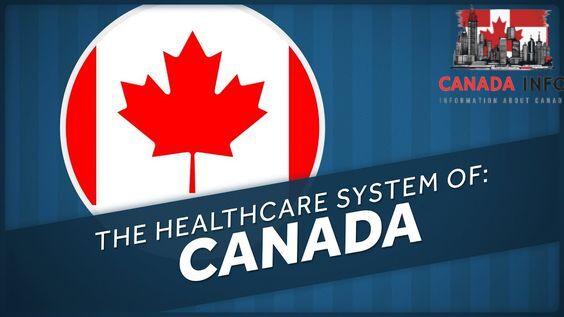Challenges and Benefits of Public Health Insurance in Canada
Public health in Canada faces a myriad of challenges and benefits, shaping the landscape of the nation’s healthcare system. Understanding these dynamics is crucial for policymakers, healthcare professionals, and citizens alike. This article delves into the challenges and benefits of public health care in Canada, examines the current challenges facing the Canadian healthcare system, and underscores the importance of health insurance in ensuring the well-being of Canadians.
Challenges of Public Health in Canada:
Health Inequities: Despite Canada’s universal healthcare system, there are significant health inequities across different demographics and regions. Indigenous communities, racial minorities, and marginalized populations often face barriers to accessing healthcare services, leading to disparities in health outcomes.
Aging Population: Canada’s population is aging rapidly, leading to increased demand for healthcare services, particularly for chronic conditions and long-term care. This demographic shift puts pressure on the healthcare system and highlights the need for innovative approaches to elder care.
Mental Health Crisis: Mental health issues are a growing concern in Canada, with high rates of depression, anxiety, and substance abuse. However, mental health services often face underfunding and inadequate resources, resulting in long wait times and limited access to care.
Chronic Disease Management: The prevalence of chronic diseases such as diabetes, heart disease, and obesity continues to rise in Canada. Managing these conditions requires comprehensive preventive measures, lifestyle interventions, and access to specialized care, posing a challenge to the healthcare system.
Benefits of Public Health Care in Canada:
Universal Access: One of the key benefits of Canada’s public healthcare system is its universality. Regardless of socioeconomic status or pre-existing conditions, all Canadian residents have access to essential medical services without facing financial barriers.
Preventive Care: Public health initiatives in Canada focus on preventive measures such as vaccinations, screenings, and health education programs. By promoting healthy behaviors and early detection of diseases, these efforts help reduce the burden of illness and improve population health outcomes.
Cost Efficiency: Compared to healthcare systems in some other countries, Canada’s public healthcare model is often praised for its cost efficiency. By pooling resources through taxation and negotiating bulk purchasing agreements, the government can control healthcare costs and ensure affordability for taxpayers.
Health Equity: Public health care in Canada contributes to greater health equity by ensuring that everyone has access to essential services based on need rather than ability to pay. This helps mitigate disparities in health outcomes and promotes social justice within the healthcare system.
Challenges Facing the Canadian Healthcare System:

Wait Times: Long wait times for medical procedures and specialist appointments are a persistent issue in Canada’s healthcare system. Despite efforts to reduce wait times, limited resources and growing demand continue to strain the system, leading to delays in treatment.
Funding Constraints: Funding constraints pose a challenge to the sustainability of Canada’s healthcare system. Balancing the need for increased funding with fiscal responsibility is an ongoing debate among policymakers, with implications for service delivery and quality of care.
Workforce Shortages: Canada faces shortages of healthcare professionals, including doctors, nurses, and allied health professionals. Recruiting and retaining qualified personnel, especially in rural and remote areas, is a significant challenge that affects access to care.
Technological Integration: Incorporating new technologies and digital health solutions into the healthcare system is essential for improving efficiency and patient outcomes. However, Canada’s healthcare infrastructure faces barriers to technological integration, including interoperability issues and data privacy concerns.
The Importance of Health Insurance in Canada:
Health insurance plays a vital role in Canada’s healthcare system, providing financial protection and access to necessary medical services for residents. Here are some reasons why health insurance is important in Canada:
Financial Security: Health insurance protects individuals and families from the financial burden of unexpected medical expenses. By covering the costs of hospitalization, prescription medications, and other healthcare services, insurance ensures that Canadians can access care without facing financial hardship.
Access to Services: Health insurance facilitates access to a wide range of healthcare services, including primary care, specialist consultations, diagnostic tests, and hospital care. With insurance coverage, individuals can seek timely medical attention and receive necessary treatments without delay.
Preventive Care: Many health insurance plans in Canada cover preventive services such as vaccinations, screenings, and health assessments. By promoting preventive care, insurance helps detect health issues early and prevent the progression of diseases, ultimately improving health outcomes and reducing healthcare costs.
Equity and Inclusion: Universal health insurance ensures that everyone, regardless of income or employment status, has access to essential healthcare services. This promotes equity and inclusion within the healthcare system, ensuring that no one is left behind due to financial barriers.
In conclusion, public health in Canada faces both challenges and benefits, reflecting the complexities of the nation’s healthcare landscape. By addressing the challenges and maximizing the benefits of public health care, Canada can strive towards a more equitable, accessible, and sustainable healthcare system that meets the needs of all its residents.

